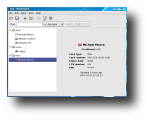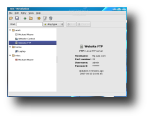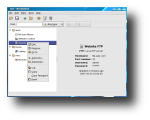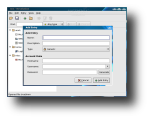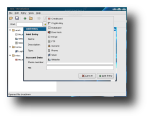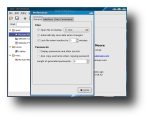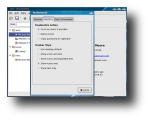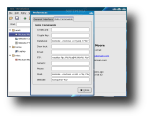If you're one of those people that use a computer several hours a day, you surely have gathered some sensitive and personal information. For instance, everyone has an email address which requires that an username and a password are used when reading and sending new electronic letters. Clearly, the more you use and rely on computers, the more sensitive data is gathered and the harder it becomes to remember and not to mix it. At this point, there are two options commonly used: people with good memory will rather store the sensitive data in their brain, while others prefer to use a password manager program to store their personal data on a computer, CD, USB stick, watch, phone and so on.
For Linux, as well as for other operating systems, there are a variety of such applications to choose from, each with its own specific features and drawbacks. Revelation is one of the most popular password managers that's also seamlessly integrated into the Gnome desktop, free, secure and easy to use. It's likely to find Revelation already included into most distributions, or at least available in the distribution's repository. Alternatively, you can install it by downloading the packages and following the instructions available on the official homepage. Prior to the installation, you system has to meet several requirements which are also listed on the homepage.
After completing the installation, you will be able to run Revelation by clicking its icon in the Gnome main menu. On its first run, you should create the file that will store your sensitive data and save it in a hidden folder somewhere in your home directory. Revelation will immediately ask for a password that will be used to gain access to your other personal details. So, basically, you can use Revelation to store an infinite number of accounts, passwords, IP addresses and credit cards information which will be accessible with only one password which you'll have to remember.
When adding a new entry to the password manager, a dialog will pop-up, requesting the entry details. In this dialog, you'll have to type a name and a description and pick a type. You'll have to choose from a drop-down menu which contains credit card, crypto key, database, door lock, email, FTP, generic, phone, shell and website. Depending on which type you've chosen, the account data fields underneath will change. For instance, when adding a new credit card entry, you will be asked for card type, number, expiry date, CVV and PIN, while when adding an email type entry, you will be prompted for the email address, hostname of the mail server and the username and password for the mail account.
For each entry added to Revelation, you can define a 'GoTo' command that can be defined from the proprieties window. For instance, if you have a secured FTP server (with username and password), you can set Nautilus as the GoTo command so it will open a connection to the FTP server using the saved login credentials with only one click.
Revelation also provides a password generate function capable of creating as much as 256 characters. This function can be used either separately, or while adding a new entry. You can easily search for certain entries using the built-in search function available in a separate toolbar. For Gnome users, there's the possibility of adding a new toolbar applet which allows you to easily browse or search your accounts without having to start Revelation. Moreover, gnome-vfs is used for loading and saving files, so you can access your accounts via ssh, webdav, smb, http, ftp and more. When you're done using Revelation, the data file can be locked either manually from the File menu or automatically, after a custom amount of time. Also from the File menu, you can change the password that guards the data file.
Revelation also supports exporting and importing data to other applications such as Password Safe, GPass, MyPasswordSafe and more.
The Good
Revelation is a password manager that integrates quite well in the Gnome desktop. Its interface is clean and intuitive, the sensitive data is kept safe in an AES-encrypted data file, everything is organized in several account types, including credit card, shell, ftp and more. It also provides a search tool and the ability to import and export the sensitive data to similar applications.
The Bad
While the application is running and has opened the data file, both the file contents and the file password are stored in memory as plain text, which allows the root user or other programs to access this information. While this is an unfortunate drawback, it's shared with most password managers as it's very hard to avoid.
The Truth
Revelation is a Gnome-compatible application that stores all your accounts and passwords in a single, secure place, and gives you access to it through a user-friendly graphical interface. While Revelation offers several useful and interesting features, it also has a major drawback, present in most password managers. If you decide to give it a try, use it only on computers you trust, or better yet, only on your own.
Check out some screenshots below:
 14 DAY TRIAL //
14 DAY TRIAL // 